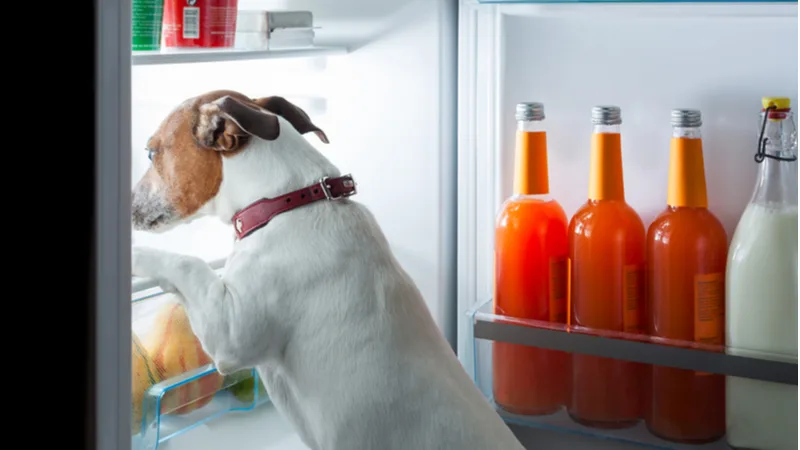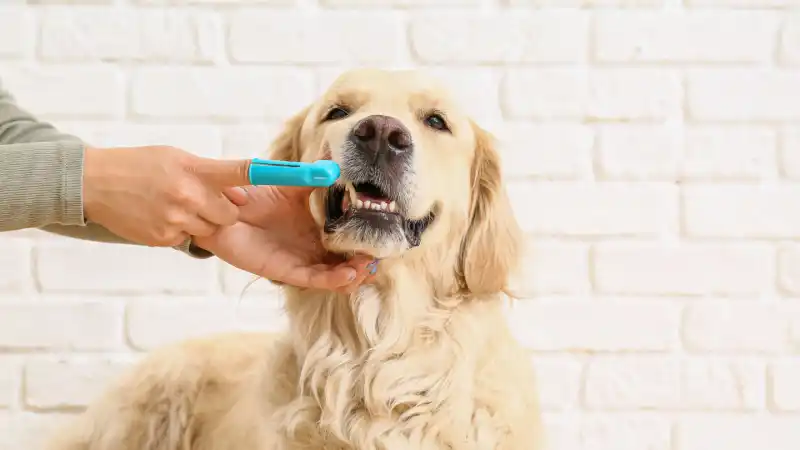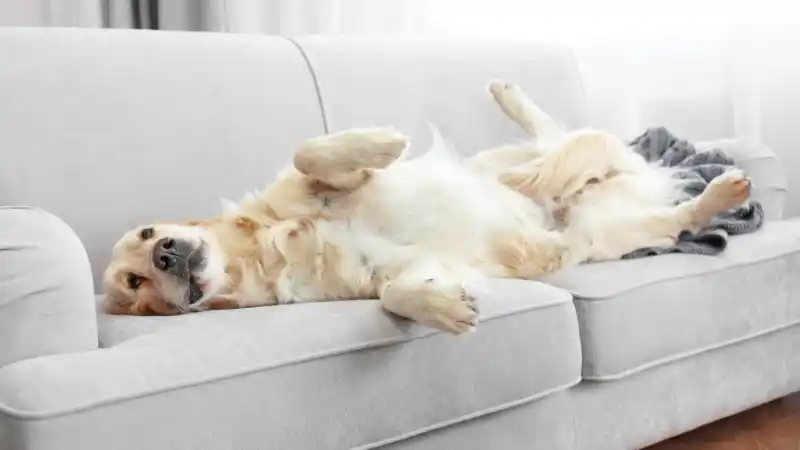Dealing With Canine Obesity: The Foods and Habits That Help
There's no one-size-fits-all option for canine weight loss. Here are the causes of obesity in dogs, ways to combat it, and when to seek a vet's help.

Dealing with canine obesity can be tough. There are so many different things to consider, and it's difficult for pet owners to know how best to help their dogs lose weight. The truth is, there's no one-size-fits-all solution when it comes to helping your dog slim down. And that means you'll need a little guidance in the form of information about the foods and habits that can help prevent and manage obesity in dogs.
In this article, we'll take a look at some of the main factors that contribute to canine obesity and explain what to do if your dog is overweight or obese. We'll also share some tips for creating a diet and exercise routine that will help your pup lose those extra pounds and maintain a healthy weight.
What Causes Obesity in Dogs?
Did you know that one in three dogs in America is overweight or obese? That's a staggering statistic, and it means that many pet owners are faced with the challenge of dealing with canine obesity. Overfeeding and a lack of exercise are the primary causes of obesity in dogs. But other factors like genetics, age, and certain health conditions can also contribute to weight gain.
Obesity is especially common in older dogs, as they are often less active than their younger counterparts. They may also suffer from age-related health conditions like arthritis that make it difficult for them to get enough exercise. In addition, older dogs are more susceptible to health problems that can result in weight gain, such as diabetes mellitus, Cushing's disease, and hypothyroidism.
Of course, obesity isn't just a health concern for older dogs – it's also an issue in puppies and middle-aged dogs too. Puppies are growing quickly, which means they need more calories than adult dogs; however, many pet owners fail to adjust their pup's food intake as they mature and get bigger.
As your dog gets older, they'll naturally shed some muscle mass and gain a little weight (just like humans!) This is a normal part of the aging process for dogs, but It's vital to manage their diet and exercise routine to make sure they don't become overweight or obese.
Other factors that can play a role in obesity include sex, breed, and whether or not a dog is spayed or neutered. Female dogs are more likely to be obese than males, and spayed or neutered dogs are more prone to weight gain. Certain dog breeds like Labrador Retrievers, Beagles, Pugs, and Bulldogs are also at higher risk of obesity.
What to Do if Your Dog Is Overweight or Obese
You can get a good idea of whether or not your dog is overweight by checking their Body Condition Score (BCS). This involves examining your dog visually and touching their body to determine if they're carrying too much weight. You can then grade their condition on a scale of one to nine, with one being very underweight and nine being severely obese.
If your dog is overweight or obese, it's critical to take steps to get them back to a healthy weight. First, visit your veterinarian to rule out any underlying health conditions that may be contributing to the weight gain. Your vet can also help you come up with a diet and exercise plan that's right for your dog.
There are many different ways to help your dog lose weight, but the main thing is to be consistent. It's not going to happen overnight, so you'll need to be patient and stick with it for long haul. Here are some tips to help you get started:
Make Sure Your Dog Is Getting Enough Exercise
If your dog is overweight or obese, it's important to be proactive about increasing their exercise. Of course, you'll need to take into account any special needs they may have (like arthritis) and adapt the activities to their physical abilities. It's a good idea to focus on low-impact exercises like walking, swimming, and light hiking. These types of activities are gentle on the joints and can help your dog lose weight gradually and safely.
When you first start increasing your dog's activity level, be sure to do it slowly. Overdoing it can lead to injuries, which will only set back your progress. Start by adding an extra five or ten minutes of exercise to their routine and gradually increase it from there. Remember, it's important to keep your dog's age, breed, and health condition in mind when creating an exercise program.
Feed Your Dog a Healthy Diet
In addition to giving your dog enough exercise, you also need to make sure they're eating a healthy diet. Your dog's daily caloric intake must be lower than their total calorie expenditure in order for them to lose weight. However, it's also crucial to ensure that they receive all the nutrients they need to stay healthy.
A nutritious, balanced diet should include lean protein, healthy fats, and high-fiber vegetables. It should also contain vitamins, minerals, fatty acids, and other vital nutrients that help support your dog's overall health. Avoid feeding processed treats, table scraps, and other unhealthy snacks. These can quickly offset the benefits of a healthy diet and contribute to weight gain.
Low-calorie, nutrient-rich foods can be given in place of unhealthy snacks and treats to help your dog lose weight. Some of the best foods to feed include vegetables like broccoli, carrots, celery, and green beans. Lean meats like skinless chicken or turkey can also be a good option for dogs that need to slim down.
If you're unsure about what to feed your overweight or obese dog, ask your veterinarian for advice. They can recommend specific foods that will help support weight loss while ensuring that your dog remains healthy.
Final Thoughts
Dealing with canine obesity can be a challenge, but it's important to remember that it's not insurmountable. With patience and perseverance, you can help your dog lose weight and get back to a healthy size. The tips provided in this blog post are just a starting point for managing canine obesity. If you're concerned about your dog's weight, be sure to consult your veterinarian for specific advice that's tailored to your dog's individual needs.
Take some of the stress out of pet ownership with Accident & Illness Coverage from AKC Pet Insurance (underwritten by Independence American Insurance Company). Our pet insurance plans are designed to be there when you need them, allowing you to focus more on the health of your pet and less on costly veterinary bills. Click here for a quote today!

Richard has shared his life with pets since childhood, and currently has a rescue cat and dog. He works with veterinarians and pet businesses to improve their content. To find out more, please visit his [website](https://richardrowlands.com/).
READ MORE ARTICLES

